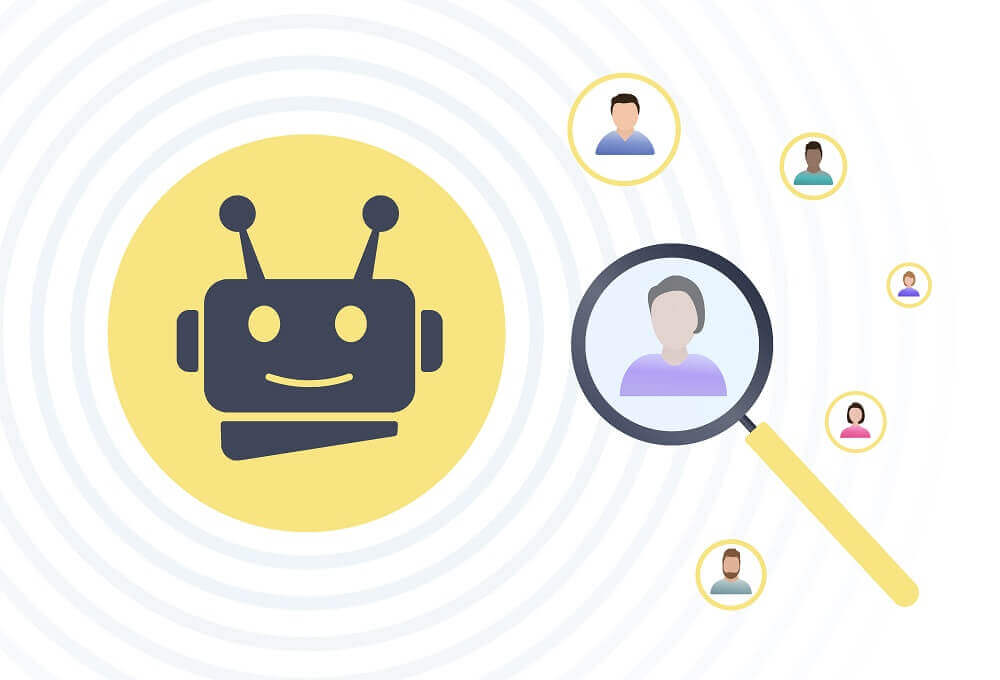It is hardly surprising that artificial intelligence (AI) sets the standard in practically every field it uses. The fast Adoption Of New Technologies has encouraged many industry leaders to progress into more sophisticated and effective fields, where AI has established itself as the most potent tool.
Companies with AI at their disposal will have a greater number of opportunities to remain one step ahead of their rivals in various ways. In reality, increasing numbers of people are investing in AI marketing, a wonderful trend that will transform how we conduct marketing.
This article will walk you through artificial intelligence, which will assist everyone engaged in marketing in doing their duties in a manner that is tenfold better than it might be. AI is a field of study that draws on numerous disciplines.
AI may be broken down into a cluster of many distinct technologies, each capable of completing activities that would normally need a person’s intellect. When applied to the typical activities involved in running a company, these technologies are capable of learning, behaving, and performing with levels of intelligence comparable to those of humans.
It is used to replicate human intelligence in robots, saving us a bunch of money in running our businesses. Throughout human history, there have been various methods of approaching AI like humanizing your thinking, reasoning should be used, behaving in a kind manner and Taking reasonable action.
In the current digital age, one of the issues that are undergoing the greatest development is artificial intelligence marketing, often known as AI marketing.
AI Marketing – Importance!
To put it in an alternative way, artificial intelligence marketing uses intelligence technology to gather data and consumer insights, predict the next actions that customers will do, and make automated choices that affect marketing activities. When speed is of the essence in marketing, artificial intelligence is often used. The Return on Investment (ROI) of marketing may really be improved with the help of AI.

With the use of AI, marketers will be able to get a comprehensive understanding of the actions and signals of their clients. As a result, they are able to apply the appropriate tactic to the appropriate individual in an efficient manner that saves time.
Making Decisions That Are both More Intelligent and Quicker
AI speeds up data processing compared to human interaction, ensures accuracy and security, and frees up your team to concentrate on key projects to create successful AI-powered campaigns.
AI has the capacity to gather and monitor tactical data in real-time, enabling marketers to make choices now rather than after the campaign has ended. They are able to make judgments that are wiser and more objective because of the data-driven reports, which allow them to identify what steps to take next.
A Higher Degree of Individualization
The concept of personalization in relation to online buying has received a lot of attention recently. Customers are increasingly looking for something when they purchase online.
Your marketing will become more tailored in a variety of different ways thanks to the use of artificial intelligence. A great number of businesses are already making use of AI to customize the content on their web pages, email, social media postings, videos, and other forms of media to meet consumers’ needs.
Each client will get customized push alerts depending on what they’ve watched or what they desire from a company. Product suggestions are another amazing AI marketing approach that may tailor the shopping experience for the consumer in a way that many traditional marketers never imagined was even feasible.
Raised ROI
ROI has increased. AI assists marketers in better understanding consumers and in providing better experiences for them. AI-powered marketing helps marketers to construct proactive client modeling and analysis of customer journeys that are more focused and uniquely personalized, which successfully enhances ROI for each customer encounter.

Marketers can acquire deeper consumer insights and a better understanding of how to categorize their customers with the help of AI. This will allow them to guide their customers to the next stage of their journey while providing them with the most satisfying experience possible.
By extensively studying consumer data and understanding what customers genuinely want, marketers can optimize ROI without spending funds on activities with no benefits. They may also avoid focusing on mind-numbing tactics that anger clients.
The Three Sways
1. Targeting using AI
The process of dividing up potential customers into several categories is an essential component of any marketing activity. If you do not have a clear idea of the kind of person you are trying to persuade, it will be quite difficult to convince them.
In the past, marketers would define a broad objective for themselves by asking themselves questions such as, “Do we want a better consciousness, engagement, absorption, revenues, or something else entirely?” After that, they assessed by hand which demographic would be the most suitable target audience for the campaign.

AI and predictive analytics have made it possible for marketers to properly determine the ideal customer demographic. The technique is not only quicker and more precise, but it also has the potential to assist in the identification of new subgroups within this larger group that share similar characteristics.
Because of this technique, consumers are able to get a more personalized deal to buyers, therefore establishing a one-of-a-kind and personal relationship that’d be difficult to do in the absence of AI.
When put into action, what does this whole procedure look like? AI segmentation enables a travel gear company to identify a wide variety of specialized sorts of clients. For example, the retailer may separate its customers into campers and hikers based on their interests.
AI may assist him in identifying a group of “lux-campers” who are seeking comfy tents and a high degree of comfort, as well as a group of “trail aficionados” who are interested in purchasing the most technically sophisticated equipment.
Once identified, it is possible to apply personalized campaigns to them, such as highlighting the benefits of a portable coffee maker that is beneficial to “luxury campers” or a new watch that is equipped with GPS and will gain notice among “trail aficionados.”
The information that AI supplies will all of a sudden turn out to be a great deal more correct, and the connections that are made with clients will become more long-lasting. AI may also assist in the process of deciding the activities that customers belonging to various segments are able to perform after getting the message that was meant for them.
Let’s get started by providing our responses to a few questions that just need a yes or no answer. As an example, once you have sent an email:
- Will the individuals in the target group read it or not?
- Will the customer give it due consideration?
- Will the customer choose to buy a brand’s product?
- The customer could decide to terminate their membership.
If you have the answers to the questions that were presented above, you will be able to more effectively tailor the message’s content. You may urge clients who often do not react to your emails to alter their communication choices so that they would only get information that is beneficial to them.
This will ensure that they do not miss any of your messages. Affiliation in the loyalty scheme may be the best technique to create a connection with each other for consumers who react to your communications and show interest in becoming members.
2. Use AI to engage consumers on their terms
A comprehensive segmentation of the audience to be targeted is a fantastic place to start, but as a salesperson, you also need to send the appropriate messages at the appropriate time and deliver them via the appropriate channels.
You can communicate with others through social media, email, mobile devices, desktop computers, and laptops. In order to maintain the appropriate degree of client engagement, AI can assist you in preparing flawless communications, determining the number of those messages, and selecting channels.
You may acquire a picture of the target audience’s preferences for engaging with your communications by analyzing the number of messages delivered to clients and comparing it to the number of active clients. This will give you an idea of how often they engage with your messages.
For instance, there are some consumer groups that will not exclusively utilize certain channels. This phenomenon can be predicted with the aid of AI. A person who has a low probability of opening the email will not be swayed by a notice that is delivered to their phone or to their social media account.
The same principle applies to optimizing the timing of content distribution in order to reach the consumer at a moment when he or she is most likely to pay attention to the message you are trying to convey.
3. Use AI to tailor content to each target audience segment
Create content that is compelling once you have determined the appropriate audience to target, as well as the time and place at which you may reach that audience. In the past, you were able to make use of material that had unique creative features, such as unique offers or other aspects that varied based on your personal qualities.
We refer to this strategy as the use of dynamic content. It is a nice option, but it often needs laborious physical labor that takes a lot of time. This might be different in the future thanks to AI. AI may assist in the determination of a number of product suggestions for businesses that provide thousands of goods and have hundreds of thousands of consumers.

These product recommendations will be individualized to meet the requirements of each subset of the target audience. Customers are introduced to items that they are most likely to purchase via the use of AI-based product recommendations, which take into consideration the behavior of web browser users and product similarities.
AI-driven marketing strategies may contain, in addition to the items themselves, customized banner advertisements aimed at persuading clients to do a certain activity. The increased amount of information gathered by AI makes it possible to dynamically tailor the content of your offers or campaigns.
The procedure as a whole is straightforward and only involves the addition of dynamic fields to the website, mobile application, or electronic brochure, respectively. After that, AI will populate them with the appropriate offers for the respective target group segment.
The nature of marketing materials and the desire for individualized customer experiences will continue to evolve as businesses continue to broaden the range of goods and services they provide their clientele and the number of ways in which they may make direct contact with those clients. Because of this, we are certain that artificial intelligence will continue to be a part of our lives for many years to come.
Conclusion
Marketers should see artificial intelligence as a tool that may assist them in better-segmenting consumers, achieving a greater degree of consumer engagement, and using dynamic content strategies. This will allow them to remain one step ahead of the competition.
Any and every one of these components, in addition to a great number of others, will eventually become an essential component of the toolbox that is used by each marketer.









GIPHY App Key not set. Please check settings